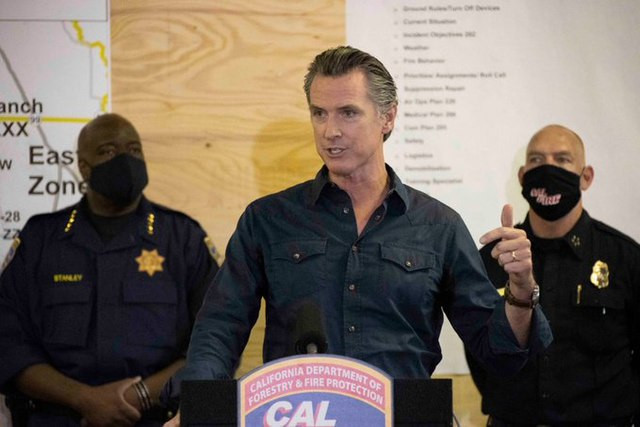California Governor Gavin Newsom has signed a sweeping package of legislation aimed at curbing the surge in smash-and-grab robberies and property crimes across the state. The bipartisan effort, which includes 10 new bills, seeks to impose stricter penalties on repeat offenders and dismantle organized reselling schemes, marking what Newsom described as "the most significant legislation to address property crime in modern California history."
At a signing ceremony held at a Home Depot in San Jose, Newsom was joined by a coalition of state lawmakers, business leaders, and local officials. "This is a victory for public safety over politics," Newsom stated. "These new laws present a better way forward-making our communities safer and providing meaningful tools to help law enforcement arrest criminals and hold them accountable."
The legislative package comes at a time when Democrats, particularly in California, are facing increasing pressure to show they are serious about combating crime. The state has seen a sharp rise in retail thefts, with viral videos capturing brazen smash-and-grab incidents in major cities, further fueling public concern.
One of the key measures in the package allows prosecutors to aggregate the value of stolen goods across different victims and counties, enabling them to meet the threshold for felony grand theft. This is expected to facilitate tougher penalties for organized theft rings and large-scale reselling operations.
"This goes to the heart of the issue, and it does it in a thoughtful and judicious way," Newsom said, emphasizing the significance of the legislation. Despite its broad support, some progressive Democrats abstained from voting, citing concerns that certain aspects of the package might be too punitive.
The new laws also address auto theft by closing a loophole that previously required victims to prove their car was locked when it was broken into-a requirement that often undermined prosecutions. Under the new law, forcible entry alone is sufficient to charge auto burglary, which can be prosecuted as either a misdemeanor or a felony.
Senator Scott Wiener, who authored the bill addressing the "locked door loophole," praised the change as a "big step forward for accountability on auto burglary." Wiener noted that the old requirement was a "senseless barrier" that often sabotaged clear cases of guilt, particularly for tourists or visitors who were unlikely to return to testify in court.
Additionally, the legislation mandates that online marketplaces like eBay collect bank account and tax identification numbers from high-volume sellers, aiming to crack down on the resale of stolen goods. Retailers will also be able to obtain restraining orders against convicted shoplifters, a move designed to provide businesses with more protection.
The package represents a significant shift in strategy for California Democrats, who have spent the past decade advocating for criminal justice reform, including efforts to reduce the state's prison population. However, the recent surge in property crimes, coupled with a growing homelessness crisis, has put pressure on lawmakers to take a tougher stance.
Newsom and his administration have also invested $267 million to help local law enforcement increase patrols, purchase surveillance equipment, and prosecute more criminals. This funding is part of a broader effort to address the public's growing frustration over what many perceive as a lawless environment in parts of the state.
The California Retailers Association has acknowledged the difficulty in quantifying the exact scope of retail crime due to underreporting by stores. However, the visible impact-such as major store closures and everyday products like deodorant and toothpaste being locked behind plexiglass-has led many to view the situation as a crisis.
According to the Public Policy Institute of California, both Los Angeles and the San Francisco Bay Area experienced a steady increase in shoplifting from 2021 to 2022. Meanwhile, the California Highway Patrol has reported recovering $45 million in stolen items and arresting nearly 3,000 individuals since 2019.






